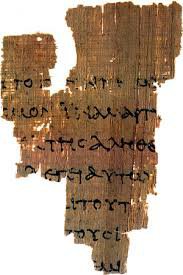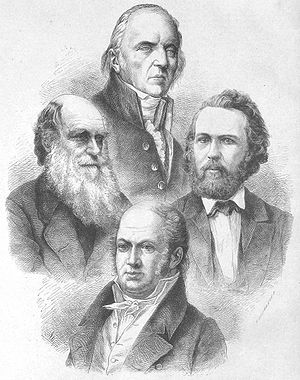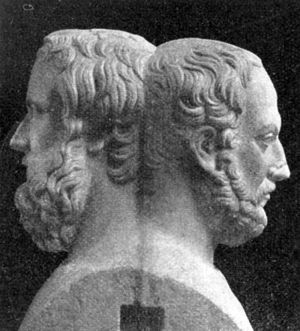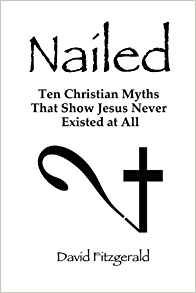I am copying Tim’s comment on a recent post here as a post in its own right.
Some interesting backpedaling today on Exploring Our Matrix . . .
McGrath:
“But as yet, the Vridar crowd have not pointed out any errors. What they have pointed out is that I did not adopt the view of the Documentary Hypothesis advocated by either Wellhausen or Friedman, which of course is typical of the crowd that gathers on that blog: they read at most a few scholars, and treat the ones they like as normative and anyone else as making mistakes or having misunderstood because they disagree with or view things differently than those few scholars the Vridar crowd has read or approves of.“
There’s a lot here to unpack. But before I analyze the insults, I will at his insistence enumerate the good doctor’s errors:
McG’s Error 1:
For me, the strongest support for the Documentary Hypothesis’ distinction between sources based on different ways of referring to God comes from the Psalms, specifically Psalm 14 and Psalm 53. If you read them both side by side, you’ll see that they are both essentially the same psalm, the only major difference being that one addresses God using the divine name YHWH, and the other does not.
This is clearly wrong, because neither E nor P has an enduring preference for Elohim over Yahweh. As I’ve said at least three times now, the importance of the divine name in the Pentateuch is when it becomes known to humankind. For example, after the revelation of the divine name, the E source switches over comfortably to YHWH. For example in Exodus 4:11 (from the E source), God is angered that Moses offers the feeble excuse that he can’t speak in public because of his “heavy tongue”:
11. And the LORD [YHWH] said unto him, Who has made man’s mouth? or who makes the dumb, or deaf, or the seeing, or the blind? have not I the LORD [YHWH]? (KJV)
According to the DH, the community that produced the Elohist tradition believed in YHWH, worshiped YHWH, and called God YHWH. However, they believed that the name “Yahweh” was unknown until it was revealed to Moses.
McG’s Error 2:
I don’t see any way of accounting plausibly for these two psalms being part of this collection other than in terms of there being different groups, or regions, or kingdoms, which had different preferences regarding how to refer to and address God. And that makes it seem plausible to account for the different passages in the Pentateuch which refer to God in different ways in terms of those same distinct traditions or groups.
Again, within the Pentateuch both P and E use Elohim from the Creation until the Burning Bush. So there are great chunks of the patriarchal narrative in which Elohim is used. The group that copied and saved Psalm 53 appears to have changed YHWH to Elohim, but this very likely happened well after the United Monarchy but before the collection of the Ketuvim.
According to Eerdmans Commentary (p. 376):
“The variations [between Psalm 14 and Psalm 53] indicate different transmission processes and different traditions, which have resulted in the two psalms being included in different collections of the psalter.”
The evidence, then, indicates that some particular group at some undefined time preferred to use Elohim liturgically vs. Adonai (YHWH). But this redaction likely occurred in the exilic or post-exilic period, not in the fictional time of Abraham, Isaac, and Jacob. In fact at least one commentator (W.O.E. Oesterley) thinks Psalm 53 comes from the later Greek period.
Incidentally, the first commenter on Exploring Our Matrix brought up the Elohistic Psalter. It’s unfortunate that nobody seemed to pick up on that term. Without going too far down the rabbit hole here, it’s interesting to read the different theories on the explanations of the variations in the different collections. But I think we’re far from seeing any kind of consensus that explains all the related phenomena. I’ve only recently come upon Goulder’s books on the Psalms, and they’re really fascinating.
McG’s Error 3:
What is significant about these two psalms (which are put to notirious [sic] use nowadays by some Christians) is that they provide corroboration external to the Pentateuch for differing traditions which resemble and presumably bear some relation to the traditions that produced and passed on the different Pentateuchal sources.
This is the same error as Error 1, but repeated for effect. Even if we were to accept Goulder’s theory that Psalm 53 is older than Psalm 14, it’s the process of textual transmission to a later period that accounts for the change to YHWH. For by the time of Ezra and Nehemiah the use of Yahweh was clearly dominant.
McG’s Error 4:
I think some may be forgetting that the P source, which is generally dated late, perhaps exilic or postexilic, had a preference for the use of Elohim, i.e. referring to God rather than using the name Yahweh.
The P source had no preference for the use of Elohim. It merely carried on the conceit that the name YHWH was unknown until the revelation to Moses in Exodus 3. After the revelation, YHWH is used freely. You needn’t take my word for it; you can read it for yourself. Try to count how many times in Leviticus the P source says certain laws must be followed because, “I am YHWH.”
————–
Now to the question of verbal abuse
Dr. James F. McGrath, Clarence L. Goodwin Chair in New Testament, and Eminent Blogger has some choice words for anyone who posts on Vridar. I suppose that would include me. Continue reading “I ask the following directly to Dr. McGrath in all sincerity”








